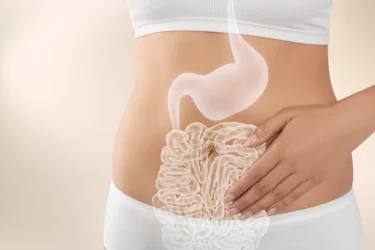Peaches (Aadoo): Uses, Benefits, Side Effects and More!
By Dr Rajeev Singh +2 more

Get,

to manage your symptom
Get your,


4 Cr+ families
benefitted

OTP sent to 9988776655



You’ve successfully subscribed to receive
doctor-approved tips on
Whatsapp

Get ready to feel your best.

Hi There,
Download the PharmEasy App now!!


Register to Avail the Offer
Send OTPBy continuing, you agree with our Privacy Policy and Terms and Conditions

Hi There,
Sign up on PharmEasy now!!
Trusted by 4 crore+ families

OTP sent to 9988776655



You have unlocked 25% off on medicines




Code: NU25
By Dr Rajeev Singh +2 more
Table of Contents
Peaches, also known as Prunus persica, belong to the family Rosaceae. Peaches are classified as stone fruits or dupes, along with cherries, apricots and plums. They have a whitish or yellow flesh that is encased around a single, hard and large seed. Their outer skin is velvety and bruises easily1.
Peach is originally from China and is now being cultivated all over the world. It was first introduced to Persia and the Mediterranean through the Silk Road, a popular trade route in the olden days. Peaches had gained popularity from Persia and were believed to be their own for a long time, thus explaining the origin of the scientific name. It is now being cultivated in various states of the United States Of America, Canada, China, Japan, Iran, Turkey and the Mediterranean region. In the United States, Georgia is known as the Peach State1.

Peach fruits may benefit our health as they contain numerous vitamins and minerals. The following sections contain a detailed explanation of how peaches may benefit our health.
The percentage content of peaches per 100 g is as follows:
A single peach can provide you with 6% of your daily vitamin A needs and 15% of your daily vitamin C needs, along with a host of other beneficial nutrients such as vitamins E and K, niacin, folate, iron, potassium, and more. Embrace the health benefits of this delicious fruit to support your overall well-being5.
Dr. Rajeev Singh, BAMS
The health benefits of peaches may be due to the following properties:
Enjoy the guilt-free delight of a peach, which contains only 50 calories. A medium-sized peach is a low-calorie fruit makes that for a smart choice when it comes to eating a healthy diet. Indulge in the natural sweetness of peaches while keeping your calorie intake in check5.
Dr. Siddharth Gupta, B.A.M.S, M.D (Ayu)
In general, fruits are good for health. As mentioned above, peaches may have a lot of properties that may make them good for health. This is mainly due to peaches being rich in vitamins, minerals, and antioxidants. In the following section, let’s look at peaches’ potential health benefits in detail.

The peach fruit is a natural source of potassium, which may be important for maintaining heart functions. In addition, animal studies have shown that peaches may help lower elevated blood pressures, which may help reduce the risk of heart problems. Furthermore, it was also seen that peaches might benefit the heart by lowering cholesterol levels in the blood, which is one of the advantages of peaches for the heart. Overall, peaches may help in maintaining heart health. However, there is a need for more studies in humans to prove its efficiency in humans4.

As seen in laboratory studies, peaches may protect our skin from the damage caused by the harmful rays of the sun, especially ultraviolet rays (UV-B). Even though there is a need for more research in this area to regard it as concrete scientific evidence, you might be able to reap its benefits by eating it. Some people may use it to get smooth skin too4.

Several studies have shown that peaches might be good for building our immunity. It is because peaches are rich in antioxidants, polyphenols and Vitamin C, which are bioactive compounds. These compounds may perform various functions like protecting cells from damage and slowing aging. Moreover, a study showed that eating peaches regularly might decrease the chances of breast cancer. In addition, there is a chance that eating peaches might decrease the severity of allergic response. However, there is a need for more research in this field to state it as a fact. Nonetheless, it is hypothesized that these actions might be due to the potential benefits of peaches for strengthening the immune system4.

Peaches may be beneficial for eye health as they contain beta-carotene. Beta-carotene is a pigment that is present in many fruits. It transforms into Vitamin A, which may help in the maintenance of eye health. However, there is inadequate research to state it as a fact. Therefore, there is a need for more research to prove the potential uses of peaches for the eyes4.

Peaches are rich in fibre which may be beneficial for digestion. It contains both soluble and insoluble fibre. Insoluble fibre might help with digestion and stool formation, while soluble fibre may play a role in maintaining stable sugar and cholesterol levels in the blood. In some studies, it was seen that tea made from peach flowers might also help digestion. However, more research is needed in this field4.

Inflammation may be caused due to various triggers in the body, which can lead to many diseases. Inflammation is due to the activation of our immune system, which is mostly an advantage for us, but when it becomes excessive, it may pose a threat by inviting many diseases. Peaches contain bioactive components that may alleviate inflammation and reduce the risk of diseases like diabetes, heart disease, cancer, and Alzheimer’s disease4.
Though there are studies that show the benefits of peaches in various conditions, these are insufficient, and there is a need for further studies to establish the true extent of the benefits of peaches on human health.
Enhance your diet with the nutrient-rich peaches, as they provide essential minerals like potassium, fluoride, and iron. Fluoride contributes to strong teeth and bones, much need for decreasing the occurrence of dental cavities and bone fractures5.
Dr. Smita Barode, B.A.M.S, M.S.
Peaches may be used in various ways:
You must consult a qualified doctor before taking any herbal supplements. Do not discontinue or replace an ongoing treatment of modern medicine with an Ayurvedic/herbal preparation without consulting a qualified doctor.
Peaches are fruits and may not show any side effects when taken in moderate quantities. There is not enough documented data to indicate the side effects of peaches. However, some people might be allergic to it. So if you have a known allergy, it is better to avoid it. If you suspect that you might be allergic to peaches, talk to your doctor and get it confirmed.
Also Read: Plums: Uses, Benefits, Side Effects and More!
In the following cases, it is better to be cautious while taking peaches:
In the above cases, it is advised that you discuss with your doctor the safety of peaches for you specifically.
Also Read: Kiwi: Uses, Benefits, Side Effects and More!
There is insufficient documented data to show the interactions of peaches with other drugs. However, there is a chance that they may react with a few drugs. So, suppose you’re on any medication, discuss with your doctor if eating peaches will interfere with the medicines you are taking.
Also Read: Mangosteen: Uses, Benefits, Side Effects and More!
Peaches (Aadoo) may be valuable for us as they have a lot of bioactive compounds. They are rich in antioxidants. They are good for the heart, skin, immune system, etc4.
Studies have shown that eating peaches might benefit our skin by protecting it from damage by ultraviolet sun rays4. It may also be used at home for getting smooth skin by mashing it along with other fruits like papaya and mixing it with honey or yoghurt.
Peaches may be beneficial for our eyes as they contain beta-carotene. Beta-carotene transforms into Vitamin A, which may be essential for the maintenance of healthy eyes4.
There is no scientific evidence that peaches may be good for growing healthy nails. Therefore, there is a need for more research in this area.
Peaches may possess anti-diabetic properties. They also contain soluble fibre, which may help in stabilising blood sugar levels. Therefore, eating peaches might be beneficial for diabetes3,4.
There is no report or study stating the value of peaches for hair. Thus, more study is required in this area to gain more knowledge about the potential benefits of peaches for hair.
There is no evidence in the form of studies stating that peaches are good for weight loss. Due to the lack of evidence, it cannot be said whether peaches are good for weight loss or not. There is a need for more research in this area.
The peach fruit is rich in fibre, which may help in digestion and stool formation. A few studies have also shown that peach flower tea might help digestion, but this requires more research to prove its effectiveness4.
Disclaimer: The information provided here is for educational/awareness purposes only and is not intended to be a substitute for medical treatment by a healthcare professional and should not be relied upon to diagnose or treat any medical condition. The reader should consult a registered medical practitioner to determine the appropriateness of the information and before consuming any medication. PharmEasy does not provide any guarantee or warranty (express or implied) regarding the accuracy, adequacy, completeness, legality, reliability or usefulness of the information; and disclaims any liability arising thereof.
Links and product recommendations in the information provided here are advertisements of third-party products available on the website. PharmEasy does not make any representation on the accuracy or suitability of such products/services. Advertisements do not influence the editorial decisions or content. The information in this blog is subject to change without notice. The authors and administrators reserve the right to modify, add, or remove content without notification. It is your responsibility to review this disclaimer regularly for any changes.
Comments

Leave your comment...
You may also like
Comments